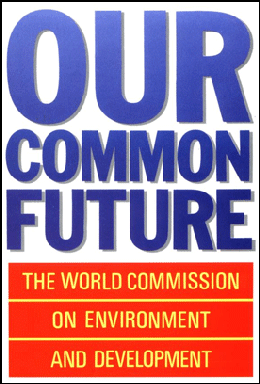From the past to the present
The ‘intentional’ incarnation of development was less an altruistic than a self-serving endeavour. The Cold War, processes of decolonization and domestic unrest in the US provided the context for the emergence of intentional development. More than anything else, fear that newly independent societies would pitch tent with the Communist Soviet block and the possibility, as a result, that the latter could gain global dominance largely informed President Harry Truman’s ‘Big Brother’ inaugural address in 1947. He described formerly colonized societies as poor and in dire need of exactly those resources Western countries had in abundance and were willing to offer gratis. Truman advanced a discourse of intentional development of ‘poor’ countries by the ‘rich’ countries to help the former become like the latter. He effectively hid the causal link between the technological advancement of the ‘rich’ and over three centuries of ‘primitive accumulation’ and despoiliation inflicted on the so-called poor countries.
Truman’s erasure of ‘immanent’ development reduced development to one thing; what others do for you in order that you might become like them! To date, the idea of development as efforts geared at ameliorating the dark-side of progress suffers erasure in both development theory and practice. The de-emphasis is not unintentional. The globalization of development - a view of development as a global phenomenon geared at becoming like the West - would be impracticable if alternative visions of what constitutes development and how it was to be attained were in circulation. Development studies promoted the idea of universal development. The idea that ‘small is beautiful’, that ‘culture sits in place’ and that ‘development is local’ have little or no place in mainstream development theory and practice. Even though accepted as possibilities, the idea of globalized ‘intentional’ development relegates place-based development to the background.
Fudged within colonial contexts, development studies denied cognitive respect to non-Western societies and disregarded other knowledges, labelling them unscientific. Development in the metropole meant predation and expropriation of resources in distant lands for the good of the homeland. It was only necessary to dehumanize the ‘other’ and deny them history to legitimize the metropolitan definition of development. But that was only one side of the coin. Development also meant the ‘civilization’ of those whose bodies and resources were violated and expropriated for European benefit. Such a view of development fails to reckon that formerly colonized societies existed in varying historical processes of change, shaped by environment, history and social organization and spiritual cognition. While development studies increasingly recognizes indigenous knowledge as a legitimate way of seeing, this is only to the extent that it lines up with mainstream development studies. Similarly, indigenous knowledge is embraced only as it overlaps with scientific knowledge - it is not empirical enough to stand on its own as a legitimate and credible mode of seeing and being.

Disquiets within the field have failed to cut the umbilical cord linking development studies to hegemonic power bases. Development may well be a discourse of control as argued by Arturo Escobar. Even more insidious, development studies promotes the capture and construction of formerly colonized societies as sites for socioeconomic experimentation. Development through modernization, import-substitution industrialization and neoliberalism rested on the view that poverty was an inherent pathology that could only be salvaged by the adoption of ‘modern’ practices and infusion of ‘missing’ Western ideas or capital. Yet the logic of identifying and adding the never-ending missing elements to attain the desired el dorado remains a staple of development studies. In consequence, the global South remains an experimental site for testing Western European ideas of development. And nobody takes the blame for the serial failure but the victim!
Development studies continues to promote a one-sided conservative view of conflict as antithetical to development. Yet European history abundantly shows that development was never the peaceful evolutionary progress it is often made out to be. In several instances, violent conflicts and the fear of revolution led to fundamental reforms and consequent development in Europe. Major institutions, including the EU, UNDP and World Bank, often claim that without peace there can be no development. Within countries, authoritarian governments preach the need for peace in order to have development when they actually instigated the condition of conflict. Yet development is inherently a conflictual process (Agbonifo 2019). It is insidious that development studies supports peace and stability in highly unequal societies characterized by internal colonialism, denial of human rights and ethnic domination. The bias for peace helps preserve unequal social structures and repressive regimes.
The idea of the ‘future’ is evident in development studies, but it is the Brundtland Report’s definition of sustainable development that brings it into sharp relief. It defines sustainable development as meeting the needs of the present without jeopardizing the capacity of future generations to meet their own needs. Development studies approaches the ‘future’ as neutral, commonly accepted and uncontested (Tibbs, 2000). Embedded in the present, the future is a site where different actors project conflicting aspirations, beliefs, values, fears and emotions (ibid.). It is unclear how development studies relates to a contested ‘future’.
What should be the focus?
In the global South, development has various uses. Atrocities have been committed against the less powerful and vulnerable in the name of development. Fragile cosmetic infrastructural projects are sold to citizens as development. In the name of development, ethnic minorities are expropriated of their natural resources which are deployed for the benefit of majority groups. Appeal is made to development when such development degrades the environment and imposes intolerable human costs on the poor. In all of these cases what constitutes development is defined by the ruling elites. It is made without regard to the values, needs, worldviews and aspirations of ordinary citizens or communities. Development studies needs to begin to actively debunk what it is not, even if there is little consensus over what it really means.
Development studies takes the human condition almost as given. In many places, the ‘civil’ in civil society is almost extinct. Cruelty to others and callousness define citizens’ and social institutions’ interactions with those most in need. Police violence on blacks in the US, xenophobia against fellow blacks in South Africa, riotous banditry and kidnapping in Nigeria and watching fleeing African migrants perish in the Mediterranean rather than rescue them are some examples of individual and institutional callousness and cruelty across human societies. The callousness of citizens and social institutions draws attention to the need to recreate humane societies as the focus of development studies.

Women in Ghana selling fruit from their market stall. ©Sandra Nijhof
What needs to change?
The world needs an emancipatory development studies - an approach that prioritises local vision and ‘immanent’ development over ‘intentional’ development (Cowen and Shenton 1996). The idea of the ‘helpless poor’ in dire need of intentional development has been promoted for too long in development studies. There is now a need to explore what local communities can, and actually do for overall community progress. Why some communities seem incapable of self-help projects and how local and translocal factors undermine the capacity of communities for self-help should be of interest to development studies. Unveiling and working to identify and eliminate local and translocal dis-empowering forces may well be a strategic approach to promoting development from below.
Where oppression and domination prevail, distrust and corruption are inevitable. Indeed, corruption is a strategic tool of expropriation and capital accumulation. Development studies needs to give more attention to corruption: money laundering, safe havens for stolen wealth, unaccounted for wealth and the concentration of wealth in the hands of a few at the expense of the impoverished majority should be prioritized. Forces of corruption unleash destitution and promote a development strategy of exploitation.
Legacies of oppression and domination continue to haunt political stability and socioeconomic development in much of the Global South. Progress in these societies will not come from concerted economic development efforts but from dismantling structures of domination and exploitation. Development studies may well begin to prioritize the political approach to progress.
From the past to the present

Professor John Agbonifo is Director of the Global Affairs and Sustainable Development Institute at Osun State University, Nigeria
